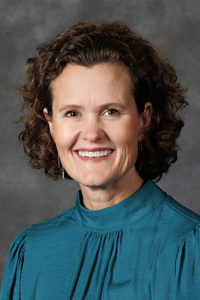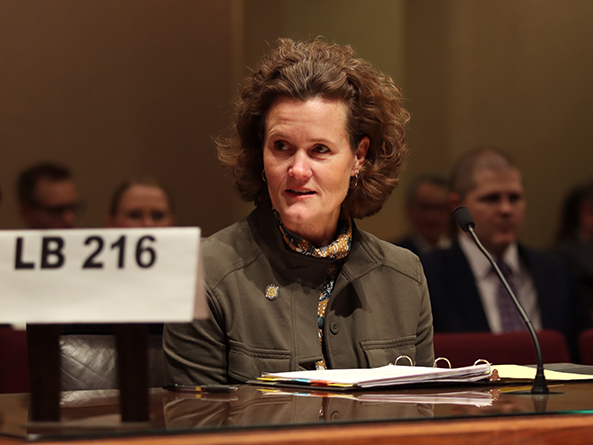Bill would expand optometry scope of practice
The Health and Human Services Committee heard testimony Jan. 26 on a bill that would authorize optometrists to perform selective laser trabeculoplasty— a procedure commonly used for glaucoma treatment that reduces intraocular pressure.

Under current Nebraska law, SLT can be performed only by licensed ophthalmologists. LB216, introduced by Seward Sen. Jana Hughes, would allow doctors of optometry to perform SLT under certain conditions.
An optometrist who is certified for therapeutic pharmaceutical agents and is licensed prior to Jan. 1, 2025, would be required to complete at least 16 hours of education and hands-on training from an accredited school of optometry before receiving their certification. Following successful completion of the course, a minimum of three proctored cases would be required.
An optometrist licensed on or after Jan. 1, 2025, would be authorized to use successful passage of the laser skills final examination, or an equivalent exam portion, of the National Board of Examiners in Optometry as qualification for certification. The licensee also would need to have completed at least three proctored cases before certification could be granted.
Hughes said that outside of the Omaha metropolitan area, only seven cities in Nebraska have a provider who is authorized to perform the SLT procedure.
“The extremely limited access to SLT is not serving the best interest of Nebraskans,” she said. “Allowing optometrists to become certified for this procedure and offer SLT in their offices will significantly increase access to care for glaucoma patients across our state.”
Teri Geist, an optometrist practicing in Omaha, testified in support of LB216. Nebraskans are at a distinct disadvantage in accessing eye care services, she said, and the state is only falling further behind the rest of the country by not updating the types of services that optometrists can provide.
“In 23 states, patients can receive more advanced care from an optometrist than our state allows,” Geist said. “Doctors of optometry provide the vast majority of primary eye care in Nebraska, but our patients — unlike those of our colleagues in other states around the country — can’t get the highest standard of care from us.”
Amy DeVries, former president of the Nebraska Optometric Association, also testified in support of the bill, saying SLT is a procedure optometrists are trained and qualified to perform. There has been no evidence of harm done to the public in any of the states where optometrists are licensed to perform SLT, she said.
“It is important to remember that optometrists in Nebraska have been safely managing glaucoma and performing the pre and post-operative care for SLT procedures for over 20 years,” DeVries said.
Glaucoma and SLT specialist Vikas Gulati testified in opposition to LB216. SLT is a technically delicate and difficult procedure to master, Gulati said, and he expressed concern that the proposal would result in the frequent misdiagnosis of glaucoma due to the expanded availability of SLT. In addition, he said, the training requirements outlined in LB216 are not sufficient.
“Plenty can go wrong with a laser if it is not appropriately performed,” Gulati said.
Will Wagner, a fourth-year ophthalmology resident, agreed. Also testifying in opposition to the bill, he said residents spend hundreds of hours watching SLT procedures and working in glaucoma clinics before performing a partial SLT themselves. Due to the difficulty, residents often perform five to ten partial SLT procedures before completing a full SLT treatment on a patient, Wagner added.
The committee took no immediate action on LB216.


